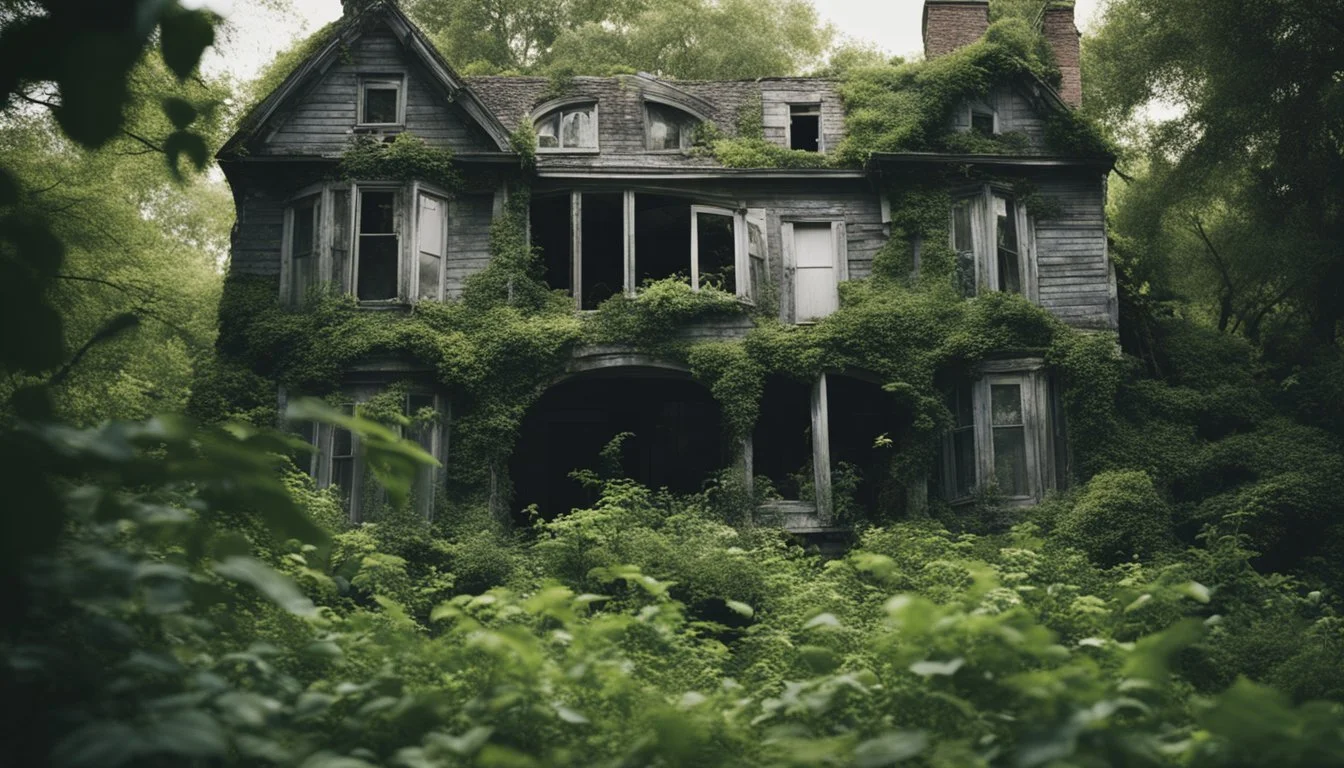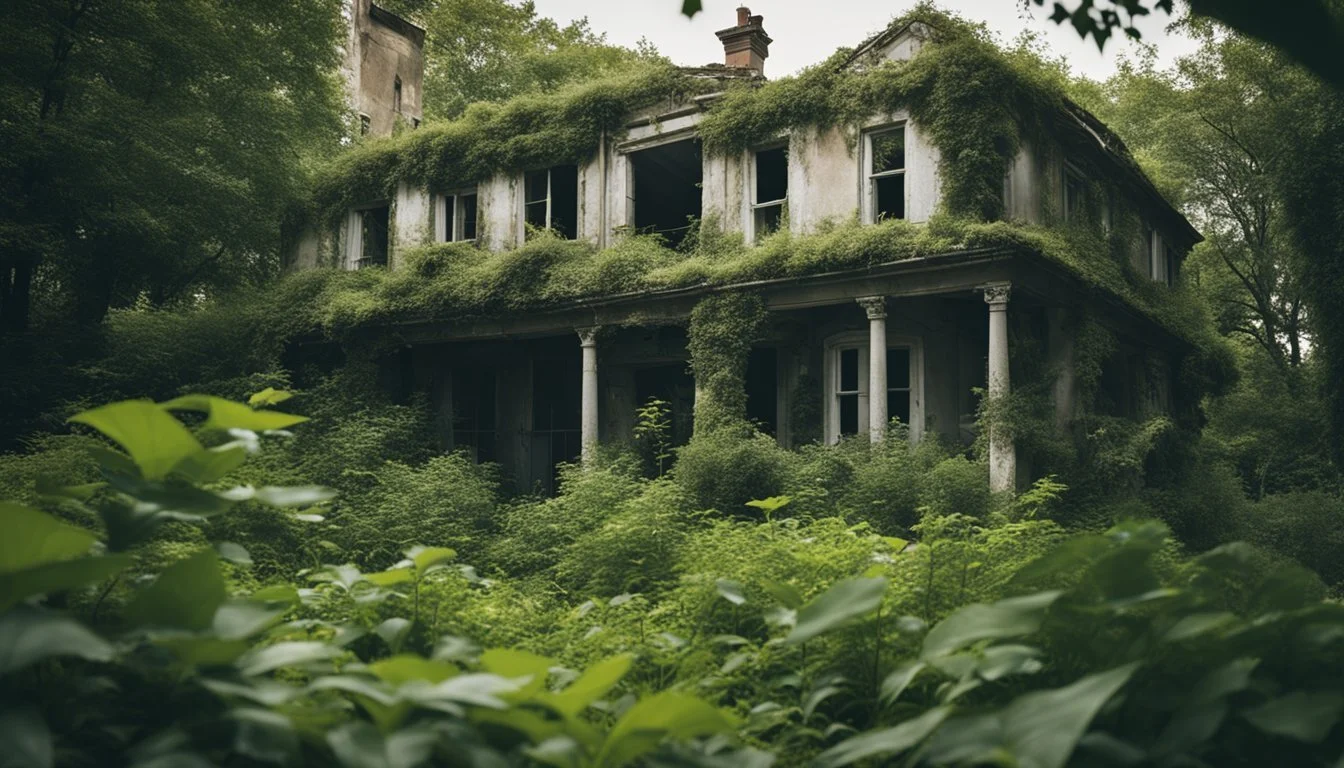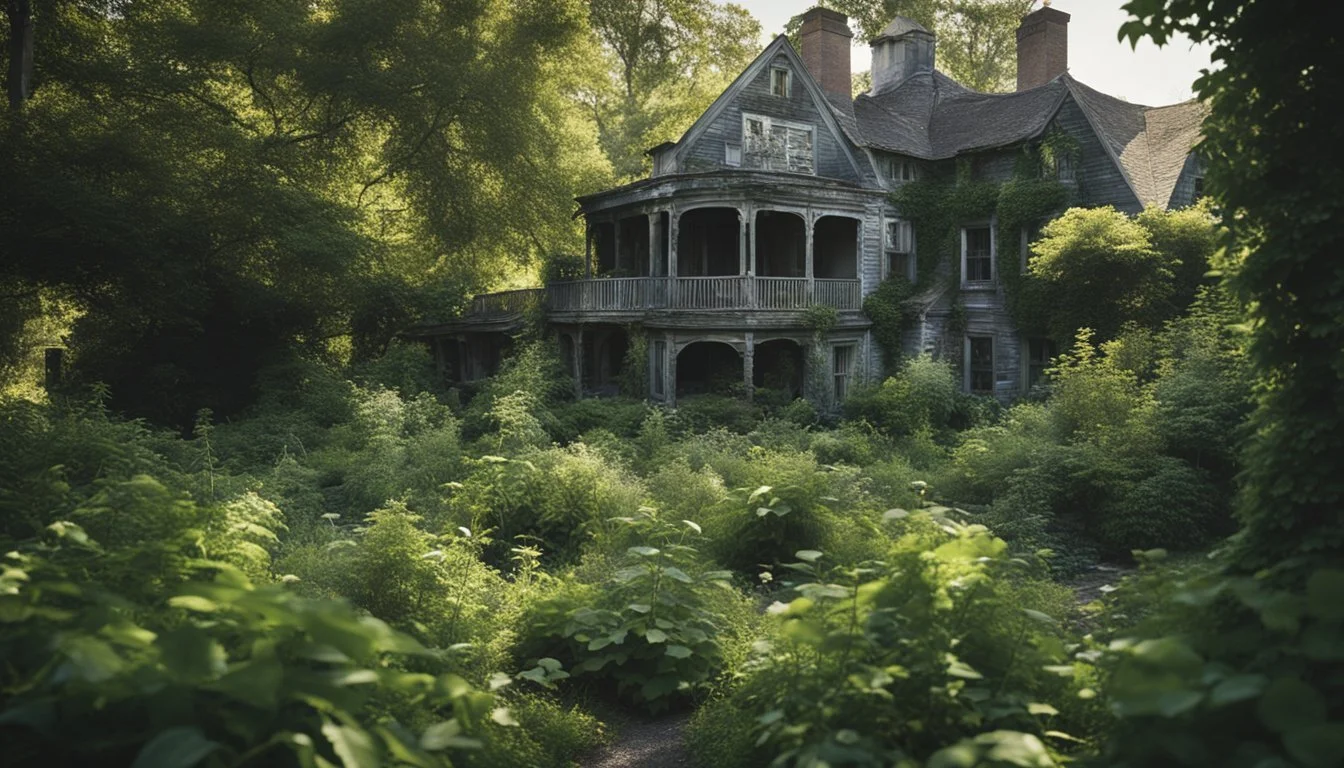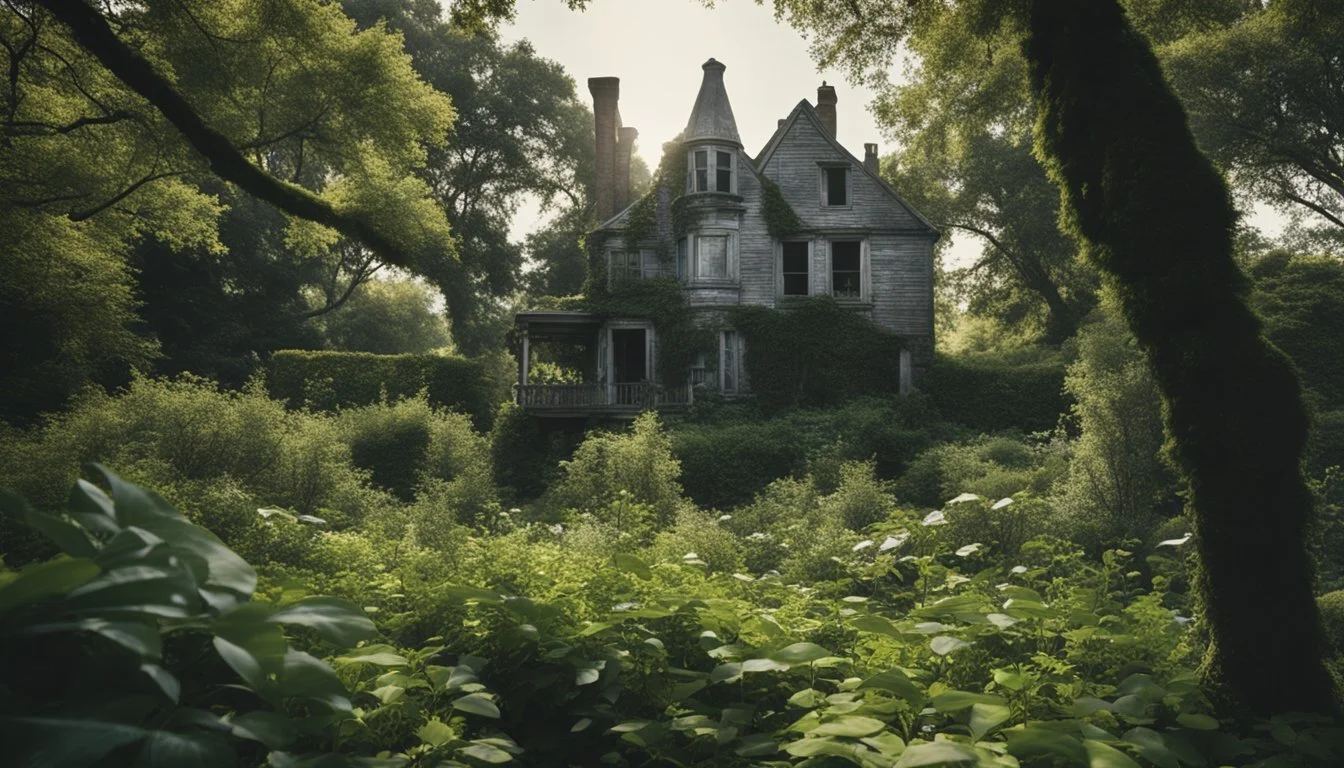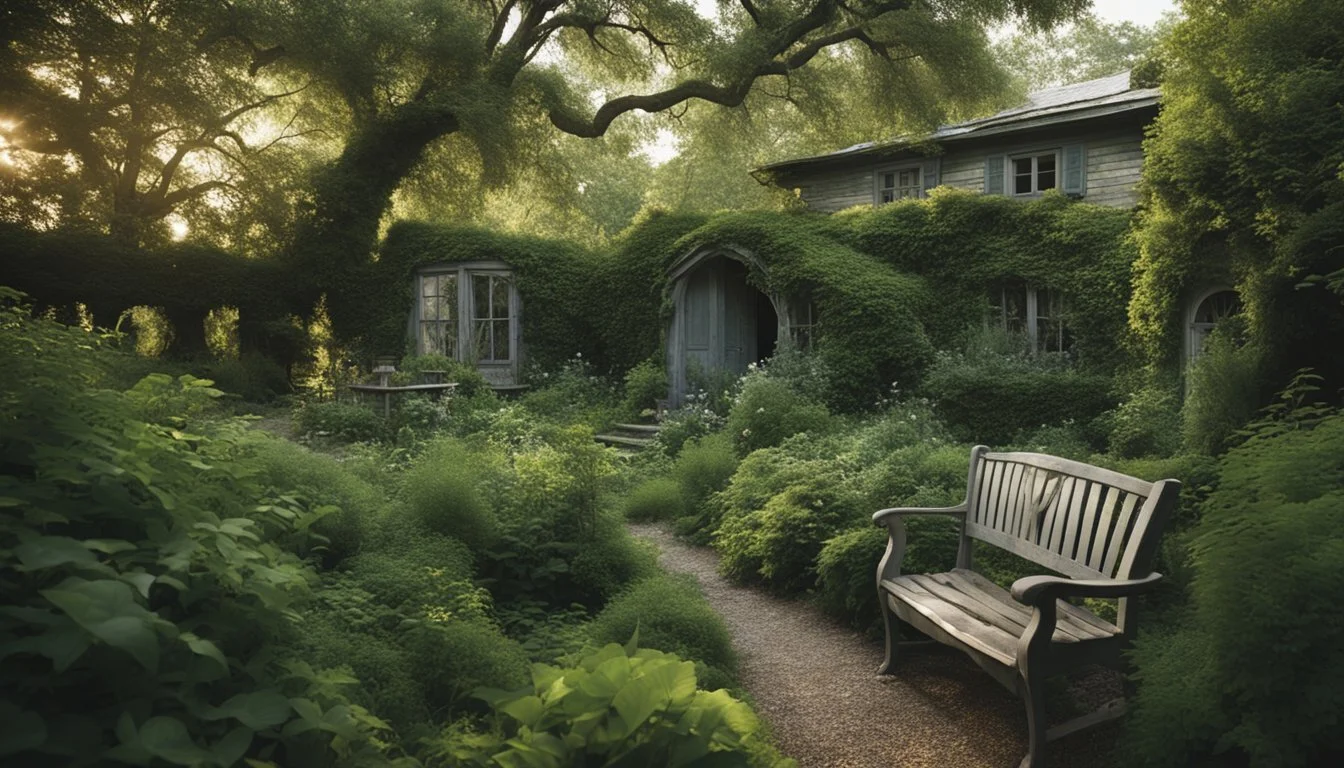Grey Gardens (1975) Review
A Timeless Cinematic Masterpiece Explored
"Grey Gardens" (1975) is a groundbreaking documentary that captures the unique lives of Edith Bouvier Beale and her daughter Edith "Little Edie" Beale. Directed by Albert and David Maysles, this film presents an intimate portrait of the mother-daughter pair, revealing their eccentric lifestyle within their decaying East Hampton mansion, Grey Gardens. The documentary investigates the complexities of the Beales' relationship and their connection to American social aristocracy, as they were relatives of former First Lady Jacqueline Kennedy Onassis.
The Maysles brothers employed a direct cinema approach, allowing the Beales' lives to unfold organically in front of the camera, without any narrative intervention. This technique lends the documentary a raw and authentic feel as viewers are presented with an unfiltered view into the Beales' world. The film explores themes of family loyalty, mental health, and the decline of high society through the lens of a compellingly unique, yet undeniably relatable, mother-daughter relationship.
Embedded within "Grey Gardens" is a captivating reflection on the passage of time, the resilience of human spirit, and the strength required to defy societal norms. Although released over four decades ago, the documentary continues to resonate with contemporary audiences, proving its timeless appeal. The film's portrayal of two strong-willed women carving their distinct paths has made "Grey Gardens" an enduring classic in the world of documentary filmmaking.
Origins and Filmmakers of Grey Gardens (1975)
The Maysles Brothers
Grey Gardens (1975) is a groundbreaking documentary directed by Albert and David Maysles. The Maysles Brothers, known for their pioneering work in direct cinema, captured intimate moments in the lives of their subjects. Their documentary style emphasized observation and a hands-off approach that allowed the characters to drive the narrative.
Albert and David Maysles started their careers in the early 1960s, creating documentaries that showcased various aspects of American society. The brothers were drawn to the story of the Beales after both working with Lee Radziwill, the sister of Jacqueline Kennedy Onassis, on a documentary project that centered around her childhood.
The Beales of Grey Gardens
Edith "Big Edie" Ewing Bouvier Beale and her daughter Edith "Little Edie" Bouvier Beale are the main subjects of Grey Gardens. The Beales were relatives of Jackie Kennedy Onassis. The mother and daughter lived in a decaying, secluded 28-room mansion in East Hampton called Grey Gardens.
The documentary portrays the Beales' eccentric, isolated lifestyle, surrounded by their numerous cats and raccoons. The film revealed their living conditions, which had deteriorated significantly over the years. The Beales were known for their unique style, expressed by Little Edie's eclectic wardrobe and her iconic headscarves.
Through the Maysles Brothers' lens, the relationship between the Beales unfolds, showing their love and frustration with each other. The filmmakers captured moments of their day-to-day life, conversations, and conflicts, providing viewers with an authentic portrayal of the Beales' world.
The documentary's release garnered widespread acclaim, and over the years, has become a cult classic. The story of the Beales in Grey Gardens continues to captivate and influence popular culture today.
Plot of Grey Gardens (1975)
Grey Gardens is a 1975 documentary film that revolves around the lives of Edith "Big Edie" Ewing Bouvier Beale and her daughter Edith "Little Edie" Bouvier Beale, who were the aunt and cousin of former First Lady Jacqueline Kennedy Onassis. Directed by Albert and David Maysles, the film takes a closer look at the secluded and decaying Beale family estate known as Grey Gardens, located in East Hampton, New York.
The documentary begins with an exploration of the mansion's deteriorating conditions. The Beales live among filth and clutter, surrounded by wild raccoons and cats. As the cameras roll, the viewers are introduced to the eccentric and reclusive world of the mother-daughter duo. Despite their impoverished living conditions, both Big Edie and Little Edie have a strong affinity for their past lives as socialites and artists.
With a series of interviews and intimate conversations, the audience gets to know the Beales’ personal histories and emotional struggles. Big Edie shares her experiences as a singer and performer, while Little Edie recalls her aspirations of becoming a professional model and dancer. The film reveals how these dreams were never fully realized, adding to the poignant tone of their story.
The relationship between the two women is central to the film as it unfolds. The dynamic between Big Edie and Little Edie is both endearing and conflicting, showcasing their unwavering codependency and love for each other. Despite the often tense atmosphere, the film captures the Beales' unique bond and resilience in the face of extreme adversity.
Grey Gardens not only offers an unfiltered look into the Beale's peculiar lives, but also serves as a reflection of the American Dream gone awry. With its raw and captivating portrayal, the documentary immortalizes the world of Grey Gardens and its unforgettable residents, leaving a lasting impression on viewers.
Significance and Influence
In Music and Popular Culture
Grey Gardens (1975) has had a substantial impact on music and popular culture since its release. It's inspired various musicians and artists due to the fascinating story of the Beale women and their unusual lives. For instance, the indie rock band The Beets released a song titled "Doing As I Do" featuring samples from the documentary.
In fashion, the eclectic outfits and unique style of the Beale women have been an inspiration for numerous designers, such as John Galliano for Christian Dior and Marc Jacobs for his Spring 2013 collection.
In Theater and Film
Grey Gardens has made a significant mark in the world of theater and film. The documentary inspired a 2006 Tony Award-winning Broadway musical, also titled Grey Gardens. The show, starring Christine Ebersole and Mary Louise Wilson, captures the eccentric lives of Little Edie and Big Edie Beale through a fictional narrative.
In 2009, a biographical drama film adaptation, also named Grey Gardens, premiered on HBO. The film starred Jessica Lange as Big Edie and Drew Barrymore as Little Edie, who both received critical acclaim for their performances. The movie showcased the process of the documentary being filmed while also exploring the history and dynamic relationship of the Beale women.
Critical Reception
The documentary film Grey Gardens (1975) directed by Albert and David Maysles, received critical acclaim upon its release. The film's vivid portrayal of the eccentric lives of Edith Bouvier Beale and her daughter Edith "Little Edie" Bouvier Beale, relatives of Jacqueline Kennedy Onassis, captivated audiences and garnered praise from critics.
Many critics lauded the film for its unique and intimate look into the lives of the Beale women, as well as their decaying estate. Grey Gardens is often commended for its candidness, as the Maysles brothers allowed their subjects to speak for themselves without interference. The film has been praised for showcasing the resilience, creativity, and nonconformity of the Beale women, while also serving as a reflection of the deteriorating American dream.
Critics also noted the technical mastery of the Maysles brothers, with their hallmark "direct cinema" style allowing the story to unfold organically and without any scripted narration. The use of handheld cameras enabled the documentary to achieve a level of intimacy and authenticity that set it apart from other films of its time.
Grey Gardens remains highly influential in the documentary film genre and continues to be celebrated by contemporary film critics. The film has been the subject of retrospectives, screenings, and tributes at film festivals and other cultural events. It has also been the inspiration for a 2006 Broadway musical adaptation and a 2009 HBO film, further solidifying its legacy within American popular culture.
Despite its critical success, Grey Gardens also faced its share of controversy. Some viewers found the exhibition of the Beales' private lives to be exploitative or voyeuristic. However, the film's legacy as a groundbreaking and compassionate portrayal of two complex, indelible women prevails, making it an enduring work of art in the world of documentary cinema.
Legacy
The impact of the documentary Grey Gardens (1975) has been both profound and lasting. This iconic film showcased the eccentric lives of Edith "Big Edie" Ewing Bouvier Beale and her daughter, Edith "Little Edie" Bouvier Beale, relatives of former First Lady, Jacqueline Kennedy Onassis.
The documentary's legacy stems from several factors, including the filmmakers, Albert and David Maysles, who employed a novel, nonfiction storytelling format known as "Direct Cinema." This technique allowed the Beale women to take center stage, and their distinctive personalities captivated audiences, making the film a cult classic.
Over the years, Grey Gardens has been the inspiration behind various adaptations and spin-offs. The 2006 Broadway musical adaptation garnered critical acclaim, earning ten Tony Award nominations and winning three. A 2009 HBO film, starring Jessica Lange and Drew Barrymore, received 17 Emmy Award nominations and won six.
Grey Gardens also left a lasting impact on the fashion world. Little Edie's unique, eclectic style consisting of headscarves, fur coats, and mismatched patterns has been regularly referenced by designers and fashion enthusiasts alike.
Lastly, the documentary has become a much-studied piece in academia, providing valuable insights into themes such as family dynamics, mental health issues, social isolation, and the passage of time. This enduring relevance is a testament to the undeniable power of Grey Gardens and its influence on popular culture and beyond.
In conclusion, the legacy of Grey Gardens (1975) has remained strong and multifaceted, continuing to inspire and fascinate a diverse range of audiences. Its impact on filmmaking, pop culture, fashion, and academia has solidified its standing as an essential piece of American cinema history.
Conclusion
"Grey Gardens" (1975) provides a unique insight into the lives of its eccentric subjects, Edith "Big Edie" Bouvier Beale and Edith "Little Edie" Bouvier Beale. The documentary showcases the complexities of the mother-daughter relationship and the intricate dynamic of living in isolation. Through its candid portrayal of the Beales, the film effectively dismantles the myth of the American dream and comments on the notion of family and societal expectations.
Albert and David Maysles fascinating portrayal of the Beales allows audiences to ponder the concept of truth and reality in documentary filmmaking. Their intimate approach with their subjects permits viewers to form their own conclusions about the Beales' personalities, lives, and motivations. The filmmakers' neutral stance encourages introspection and interpretation from the audience, making it a timeless example of thought-provoking documentary storytelling.
In summary, "Grey Gardens" (1975) serves as an important film within the documentary genre, offering a unique exploration of human nature, family dynamics, and the fragility of societal norms. The film remains relevant today as it prompts introspection and debate concerning the essence of truth, freedom, and individuality.
#ellen hovde #albert maysles #tv movie #muffie meyer #portrait films #edith beale #reclusive cousins #susan froemke

